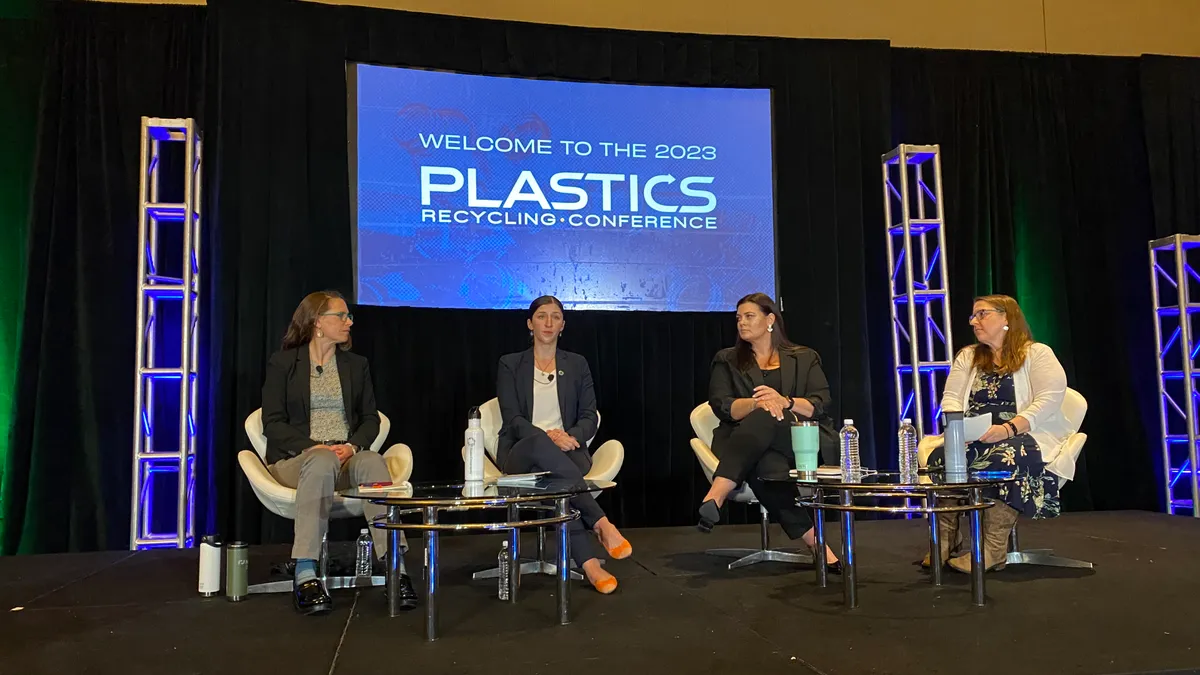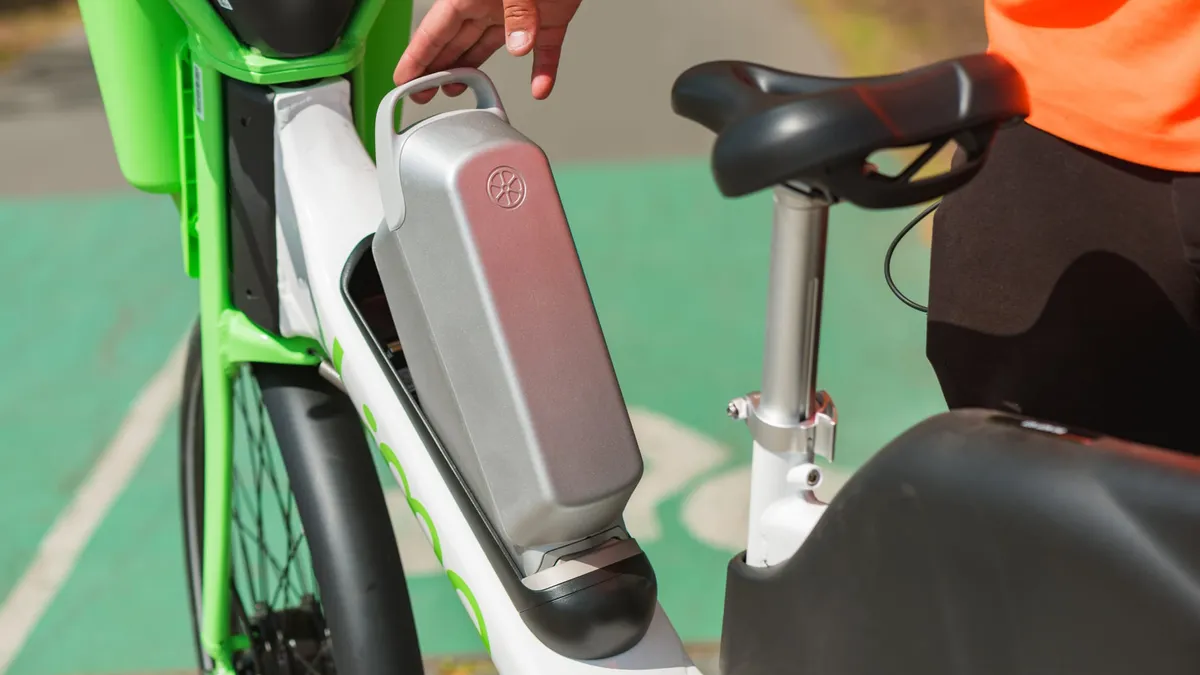NATIONAL HARBOR, MARYLAND: Stakeholders throughout the waste and recycling industry have been influential in shaping major state laws, advocating for local waste management issues and connecting with federal agencies like the U.S. EPA on major regulatory changes.
A panel of speakers at the Plastics Recycling Conference on Monday offered their tips for fostering strong, lasting relationships with local, state and federal officials. Here are some of their key takeaways:
Find the right champion
Whether you’re asking for a law to be changed or just trying to advocate for recycling or waste services in the community, it’s important to find the appropriate person to connect with.
If you don’t know where to start, ask the lawmakers who represents your area for recommendations of colleagues who are typically interested in your particular issue, suggests Anja Brandon, the associate director of U.S. plastics policy for the Ocean Conservancy who formerly worked with Sen. Jeff Merkley (D-Ore.) on ocean plastics legislation. Identifying a local recycling or waste caucus is another way to find advocates who are already knowledgeable about some of the issues, she said.
Form tight connections with the staff that run your relevant legislator’s office, added Andrew Cassilly, a former Maryland state delegate who now works in government relations for anaerobic digester company Bioenergy Devco. It might be tough to get a meeting directly with a senator or representative on the Hill, but a staffer who understands your point of view can be your advocate when bill language is being written. “You may not always need to go to a top person,” he said.
Find what they really care about
Politicians are typically short on time, so it’s okay to get right to the point during the first meeting, said Todd Kaminsky, a former New York state senator who led one of the state’s extended producer responsibility for packaging bills. “When they ask you what you need, just tell them. It saves everyone time,” he said. Today, he gives that same advice to his clients at the law firm Greenberg Traurig.
The tricky part is finding a way to capture a legislator or official’s interest after the meeting is over, Cassilly added. Officials are generally supportive of recycling in theory, but if constituents don’t have a clear ask or action step, momentum on the issue could fizzle.
Identifying topics officials are passionate about sometimes goes further than a detailed presentation packed with facts, said Stephanie Baker, director of market development for KW Plastics. During a meeting with an Alabama state senator a few years ago, Baker came armed with a thorough report advocating for recycling fund grants — but she never got a chance to finish her pitch because the senator only wanted to hear about the company’s sales and employee numbers.
Appealing to his business sense helped win his support, she said. “At the end of the day, he didn't need to know how recycling works. He just needed to know that this was something that was important to us.”
Keep it simple
Conveying complex recycling and waste concepts can be tricky, but panelists said it’s important not to overdo it on jargon or copious details. Zoom out to explain the major concepts first, and find an engaging way to communicate them, Brandon said. Staffers and officials “need help and support to have ownership over your issue and feel empowered to do it,” she said.
Offering to send more information or documentation is another way to make an impression after you leave the office, panelists agreed. “Be brief. You can always follow up with more details later,” said Kate Bailey, chief policy officer of the Association of Plastic Recyclers, who was heavily involved in writing and advocating for Colorado’s 2022 EPR law.
Build relationships over time
The relationship doesn’t stop after one meeting, panelists said. Find ways to create connections that aren’t centered around time-sensitive asks or looming legislation.
One easy way to build relationships is to invite lawmakers for a facility tour, which gives them a peek into where their materials go and how many people actually work in the industry, Bailey said. Plus, it’s great for a photo op. “They're really surprised to see” what a MRF is like, she said. “They make funny jokes about it, like ‘Oh, is that my yogurt container?’”
Reach out during the periods around America Recycles Day and Earth Day to promote recycling and waste prevention tactics, and invite local officials to community cleanups or other events, she added. Just a quick hello at a chamber of commerce event or out in public can also go a long way, added Baker, who is a city council member in Troy, Alabama. She sometimes chats with constituents when she bumps into them at Walmart.
Kaminsky also suggested that attendees do some research to make sure they’re not competing for attention during a busy period, like spring budget season or the end of the legislative session when lawmakers are considering a high volume of bills. Periods when politicians are looking for campaign contributions can also play a role in where they direct their attention, he said.
More casual interactions, mixed with regular check-ins, can mean that you’ll be more likely to make an impact when urgent legislative decisions take place. “Be a trusted resource. Be who they go to,” Brandon said.























